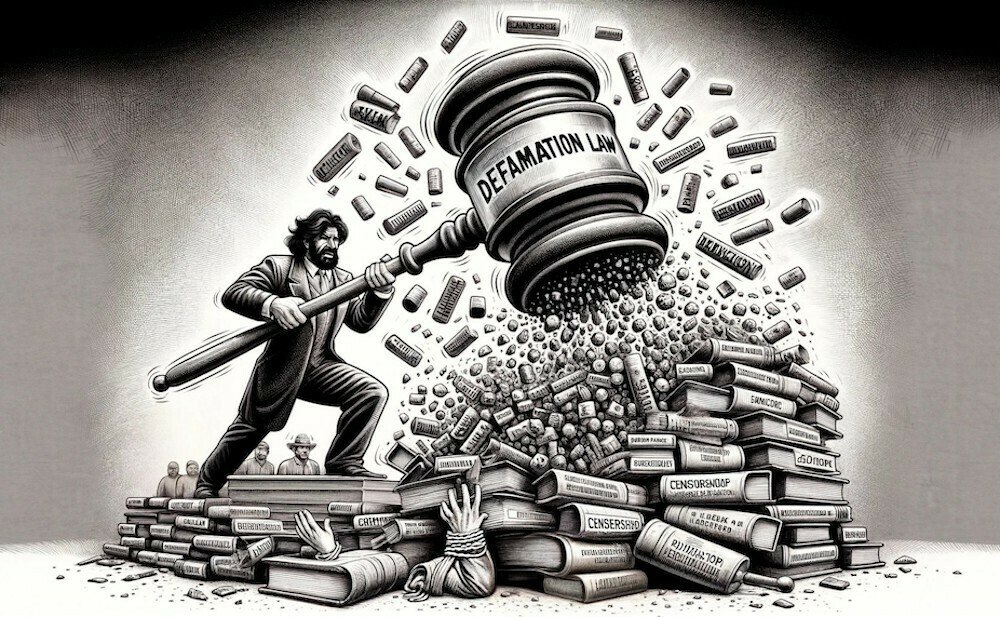On a recent Saturday, Advocate Nadeem Sarwar lodged a petition in the Lahore High Court (LHC) challenging the Punjab Defamation Law, 2024, with the chief minister, governor, and Punjab government named as respondents in the case. The petition contended that the law violates the constitution and existing defamation ordinances and acts. Furthermore, the petitioner asserted that journalists were not consulted before the law’s passage, indicating that it was hastily enacted to exert control over the media. The petition implored the court to declare the defamation law as “null and void” and requested a suspension of its implementation until a final decision is reached.
The Punjab Defamation Law, 2024, recently acquired official status after being signed by Acting Governor Malik Muhammad Ahmad Khan and subsequently gazetted. However, this development has sparked a significant controversy. The Council of Pakistan Newspaper Editors (CPNE) vehemently opposed the bill, denouncing it as a grave encroachment on press freedom and labeling it a “black law.” The CPNE argued that the bill, rushed through without proper consideration, not only establishes a parallel judicial system but also grants self-styled tribunals the authority to levy substantial fines ranging from Rs3 million to Rs30 million. In a statement, the CPNE expressed deep concerns that the bill could grant unchecked power to the administration to suppress dissenting voices, asserting its firm refusal to accept such draconian legislation and readiness to protest alongside other journalistic organizations.
Amid mounting pressures, the government’s key ally, the PPP, opted to distance itself from the PML-N over the legislation. Ali Haider Gilani, the parliamentary leader of PPP in the provincial assembly, voiced disappointment over the lack of consultation regarding the recently passed Punjab Defamation Bill, 2024. Gilani lamented the absence of consultation or notification to the party regarding the bill’s approval, emphasizing that the PPP had no intention of being associated with the legislation, leading to instructions for its members to abstain from the session on the day of its passage. This political rift over the law underscores its contentious nature and potential impact.
















